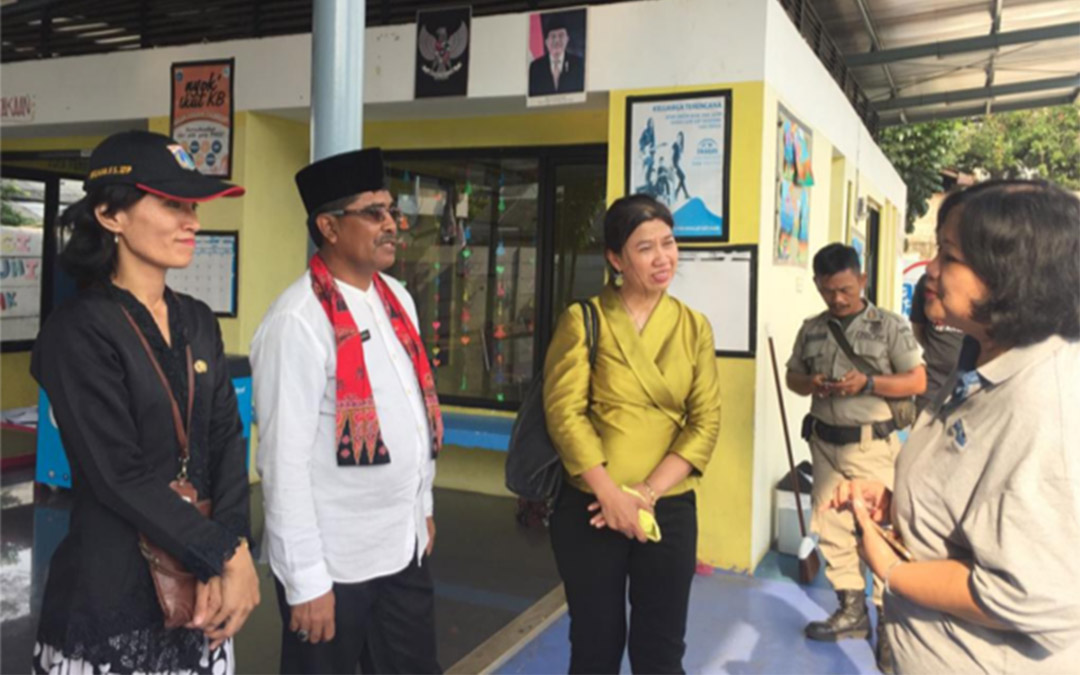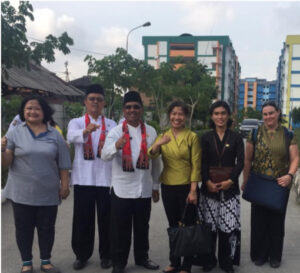8 February 2019 I Jakarta, Indonesia – Sustainable Development Goal 11 (particularly Target 11.7) states that one of the indications for SDGs localisation is the provision of universal access to safe, inclusive and accessible, green and public spaces, in particular for women and children, senior citizens, and persons with disabilities by 2030. UCLG ASPAC has empowered local governments by leading the application of inclusive and bottom-up approach in the establishment of public spaces in various cities. Currently, UCLG ASPAC is in close collaboration with local government of Jakarta, with support of UN-Habitat, to identify the best sites within Jakarta area to develop public space which will contribute to social cohesion and community resilience.
Considering the positive impacts public space will bring, UCLG ASPAC is keen to transform Taman Aktif Flyover Klender into a space that provides solution to the surrounding community. Taman Aktif Flyover Klender (TAFK) is situated under the flyover of Klender, in the middle of crowded neighbourhood and slum area. UCLG ASPAC sees TAFK’s potential to strengthen social cohesion and community resilience, by transforming it into public space with the involvement of local community from the beginning of the process.
On 8 February 2019, UCLG ASPAC, represented by Secretary General Bernadia I. Tjandradewi, conducted an initial observatory visit at the site. During her visit, Secretary General consulted with various local stakeholders in order to examines the ways in which public space could make a difference to local community. The survey visit also identified local conditions (infrastructure, facilities, and communities) that would affect the development of the site, such as: railway, vertical housings, and market.
After the site is formally selected, UCLG ASPAC will assist local government of Jakarta to conduct further discussion with the community and develop a work plan for the site. The process will cover identification of weaknesses of the site, and capitalisation of its strengths. In the discussion process, local park-users, community members and residents will be involved and encouraged to contribute their local expertise to co-create a public space that will meet the social and economic needs of the local community. The partnership will create an exemplary public space that can serve as model of best practices for further development across Jakarta, Indonesia and Southeast Asia.
In addition to this activity, UCLG ASPAC has worked with city government of Surabaya to develop three public space pilot projects in Surabaya (located in Ketandan, Keputih, and Kedinding) and local government of Surakarta (Sriwedari Culture Hall). The public spaces developed vary according to the needs of the local community.












